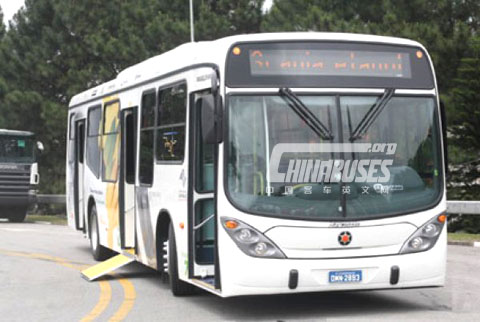São Paulo is taking another step towards sustainable development. The city’s mayor, Gilberto Kassab, announced recently that Scania ethanol buses will become part of the public transport system. The first 50 buses will go into service in May 2011. There are a total of some 15,000 public transport buses in São Paulo. One official environmental target is that all such buses should operate on renewable fuels by no later than 2018.
Scania is receiving the ethanol bus order after a few years of field trials in São Paulo, coordinated by experts with links to the University of São Paulo and with participation by ethanol suppliers, bus bodybuilders, operators and São Paulo transport authorities.

Scania Marcopolo Bioethanol Bus
The new Scania buses will operate in São Paulo, where transport authority SPTrans is aiming at an initial fleet of 200 ethanol buses. All buses will be manufactured in Brazil. Chassis assembly will take place at Scania’s production unit in São Paulo and bodywork will be done by a local company.
Brazil is the world’s largest producer of ethanol fuel and has long experience in producing and using biofuels in a sustainable way. The ethanol is made from cane sugar and has been used since the 1980s as fuel for cars and other vehicles with petrol-fuelled engines. Successful public policies on land management have allowed a steadily increasing output of bioenergy and other agricultural products, while deforestation rates in the Amazon are continuously decreasing.
Scania started to develop ethanol buses in the mid-1980s in close cooperation with the Stockholm regional public transport company Storstockholms Lokaltrafik (SL). Two decades of regular full-scale operation in tough urban conditions show that ethanol-power is a fully proven bus technology. There are no operational drawbacks as long as the scheduled maintenance requirements are followed. The buses are completely standard, using regular Scania components.